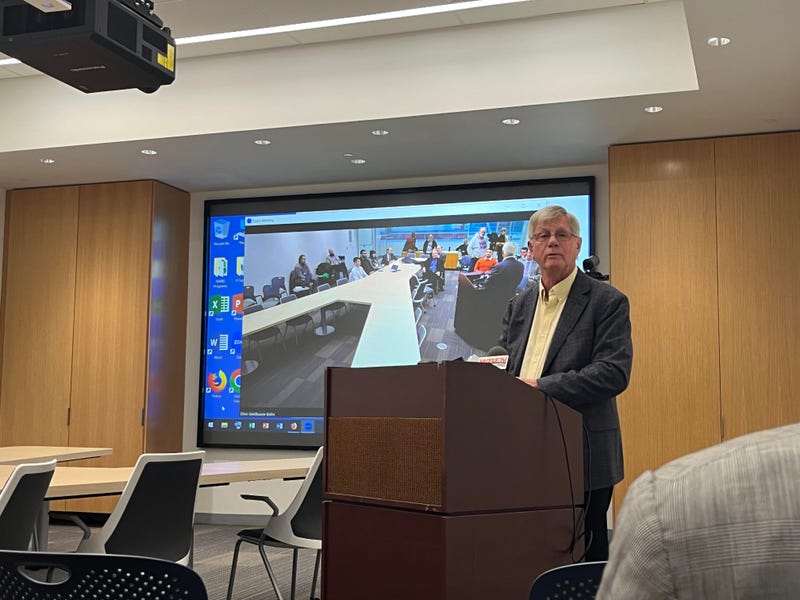
Buffalo, N.Y. (WBEN) - Researchers and physicians at the University at Buffalo are on track to set new framework for the U.S. Department of Defense's concussion protocols.
University at Buffalo researchers have received $4.8 million in funding from the U.S. Department of Defense (DOD) to conduct clinical trials to determine whether incorporating elements from the Buffalo Concussion Protocol to the current DOD's protocol would improve outcomes for active military members who have sustained a concussion.

"My colleague, Dr. Barry Willer and I developed the only evidence-based treatment that safely speeds concussion recovery in athletes," explained Dr. John Leddy, principal investigator on the grant, clinical professor of orthopedics and director of the UB Concussion Management Clinic at UBMD Orthopaedics and Sports Medicine.
"After a concussion, athletes, but everybody really has what's called exercise intolerance. That is, they can't exercise to the level that they could before the injury because their symptoms go up. So to kind of systematically define that and use it as the basis for treatment, we put the patient on a treadmill and gradually increased their speed and determined which point their symptoms become significantly exacerbated."
Following the tests, the doctors then prescribed an individualized exercise rehabilitation program based upon the heart rate that they achieve on the treadmill and once the doctors presented their research, military members approached the doctors to use their research in the military and apply for a grant and completed a pilot study in Fort Bragg in North Carolina.
"We did it during the time of COVID. So it was challenging to do it, but we finished it and we showed that those service members who got the Buffalo Protocol had a significant reduction in their time time to recovery. If you look at the overall rate of delayed recovery in the service members, it's quite high in this program, cut it in half, approximately. So again, this grant will allow us to take our protocol, which we personalized for each individual and apply it to the military environment," Dr. Leddy said.
Dr. Barry Willer, co-principal investigator on the grant and professor of psychiatry says that there were complications during this project conducted during COVID, as they had to conduct some of their study via telemedicine, which is done virtually and not face-to-face, so they altered their treadmill tests, as they were told they didn't have access to a treadmill.
"One of the medical students working with us, who has a pretty good family history with the military said, 'Well, let's just do what they do and let's have them do a march in place,' We're going, 'Huh? What are you thinking?' They march in place and with a metronome, you can speed that up and and see where their heart rate is when they have symptom exacerbation, just like we do with the treadmill. We did a little bit of research got some subject and sure enough, symptom exacerbation occurred at exactly the same heart rate as it did on the treadmill, so that became our protocol," Dr. Willer explained.
The funding for these future trials have currently been received, but before the doctors can progress in their research, they need to complete an ethics review, which could take months.
Dr. Leddy says that they are looking to conduct their 4-year research through clinical trials by the spring of next year.
See the player below for the full announcement:
